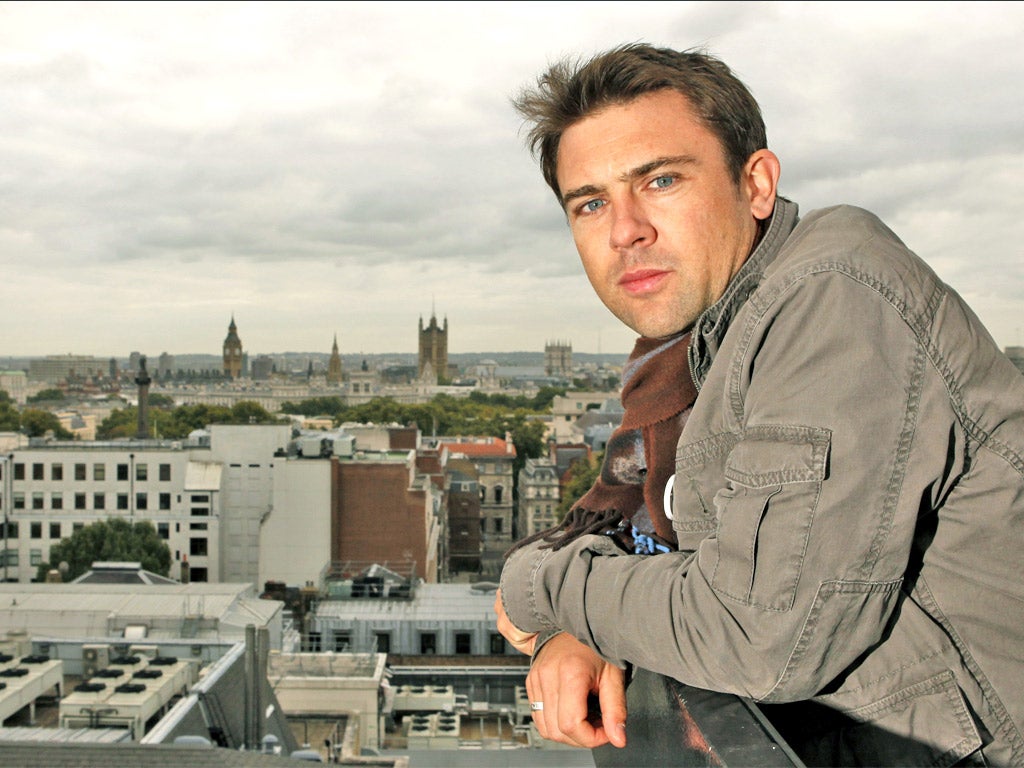I Saw a Man, by Owen Sheers - book review: Life changing events play out within the comfortable milieu of Hampstead
Faber & Faber, £14.99

Your support helps us to tell the story
From reproductive rights to climate change to Big Tech, The Independent is on the ground when the story is developing. Whether it's investigating the financials of Elon Musk's pro-Trump PAC or producing our latest documentary, 'The A Word', which shines a light on the American women fighting for reproductive rights, we know how important it is to parse out the facts from the messaging.
At such a critical moment in US history, we need reporters on the ground. Your donation allows us to keep sending journalists to speak to both sides of the story.
The Independent is trusted by Americans across the entire political spectrum. And unlike many other quality news outlets, we choose not to lock Americans out of our reporting and analysis with paywalls. We believe quality journalism should be available to everyone, paid for by those who can afford it.
Your support makes all the difference.Near the beginning of Owen Sheers’ new novel, Michael, the main character, tries to write one of his own: “The prose of writers he admired – Salter, Balzac, Fitzgerald, Atwood – remained unattainable to him.” Discouraged by his impossible expectations, Michael embodies what the poet Marianne Moore called “ambition without understanding”. So what does he do next? Dabble in painting then lose heart when he fails to emulate Picasso? Start playing guitar but give up because he can’t wail like Hendrix?
Instead, Michael, a New York-based English journalist, writes BrotherHoods, a non-fiction work about drug dealer brothers, which becomes a bestseller at the same time as the brothers experience prison and destitution. Michael’s writing is “the antithesis of gonzo journalism; an eradication of the writer in the writing’’. Flush with success, he returns to London where he marries Caroline, a war reporter. The couple make their home in Wales but, just when they look set for light years and long walks, Caroline is killed by an American drone strike while working in Pakistan.
Grief-stricken, Michael moves to London, renting a flat overlooking Hampstead Heath, where he befriends his neighbours, Josh and Samantha Nelson and their small children. Sheers explains: “The event that changed all their lives happened on a Saturday afternoon in June, just minutes after Michael Turner – thinking the Nelsons’ house was empty – stepped through their back door.” This event’s timing – early enough to shape the story but sufficiently late to qualify as a twist – makes plot summary tricky.
Fortunately, Sheers’ thriller is driven as much by subtle ideas as suspense. He works back from and up to the cataclysm, painting a psychologically astute portrait of his protagonists’ “accelerated friendship”: “It was exactly because of its newness, its lack of depth, that Michael, Samantha and Josh had embraced their newfound compan- ionship with the familiarity of years.” As readers of Sheers’s previous books – which include the novel Resistance (2007) and the verse drama Pink Mist (2013) – will anticipate, passages glitter with imagery: Samantha describes American women driving SUVs, their “painted nails clutching the steering wheels like the feet of caged birds”.
For a while, the trees at the Heath’s edge shelter the characters from the wider city. However, the nearby ponds’ still surfaces belie turmoil, everything is connected and the financial crisis of 2008 disturbs this comfortable milieu, especially as Josh works for Lehman Brothers, which owns shares in the firm that supplied the missile that killed Caroline. Greedy bankers have become stock characters in novels about contemporary London but, although Michael calls him “a child in this world”, Josh is a complex figure.
The writer Colin Macinnes famously “found adultery in Hampstead indescribably dull”. I Saw A Man features some predictable adultery, and a narrative about the soldier responsible for Caroline’s death reads less like a necessary element than the work of an author who visited memorable American landscapes while writing this book. Closer to home, Sheers writes carefully about careless people and the results present the reader with a reflective window on to self-deception. Michael wants to immerse himself in his subjects’ lives when it suits him while for the rest of the time ignoring the troubled society around him. But is there hope for Michael? Could his fiction yet ring true? The climax of this clever novel provides answers.
Join our commenting forum
Join thought-provoking conversations, follow other Independent readers and see their replies
Comments